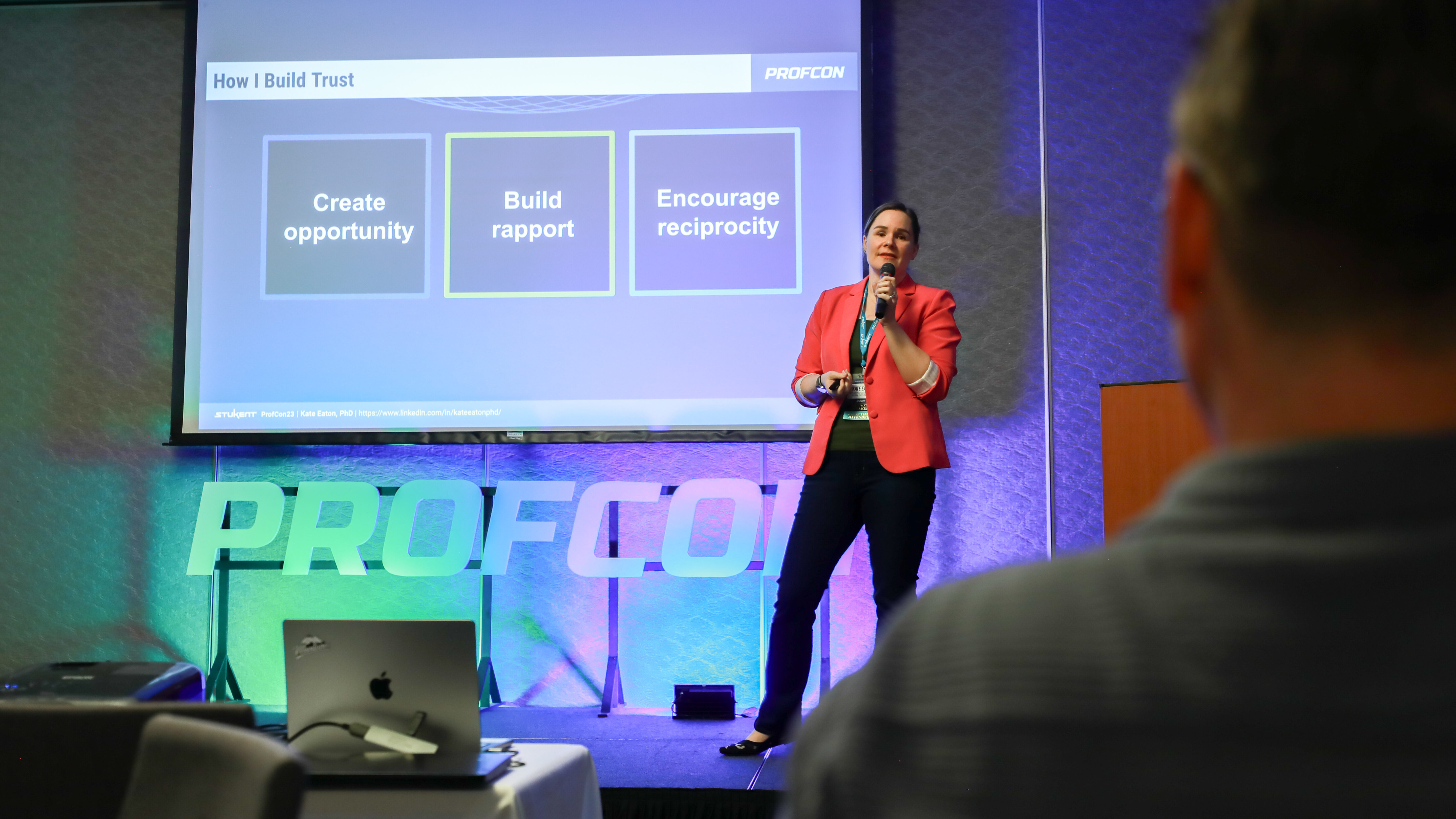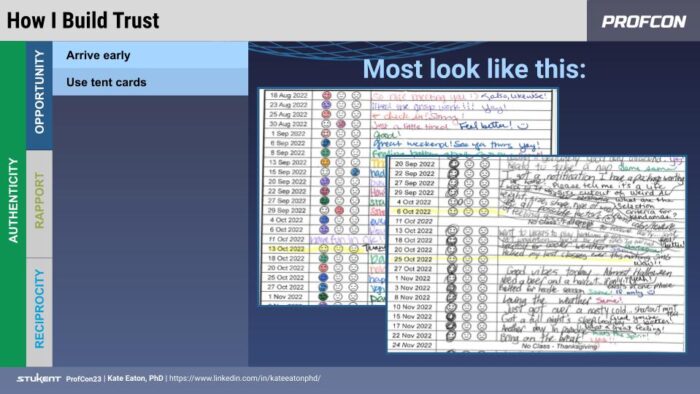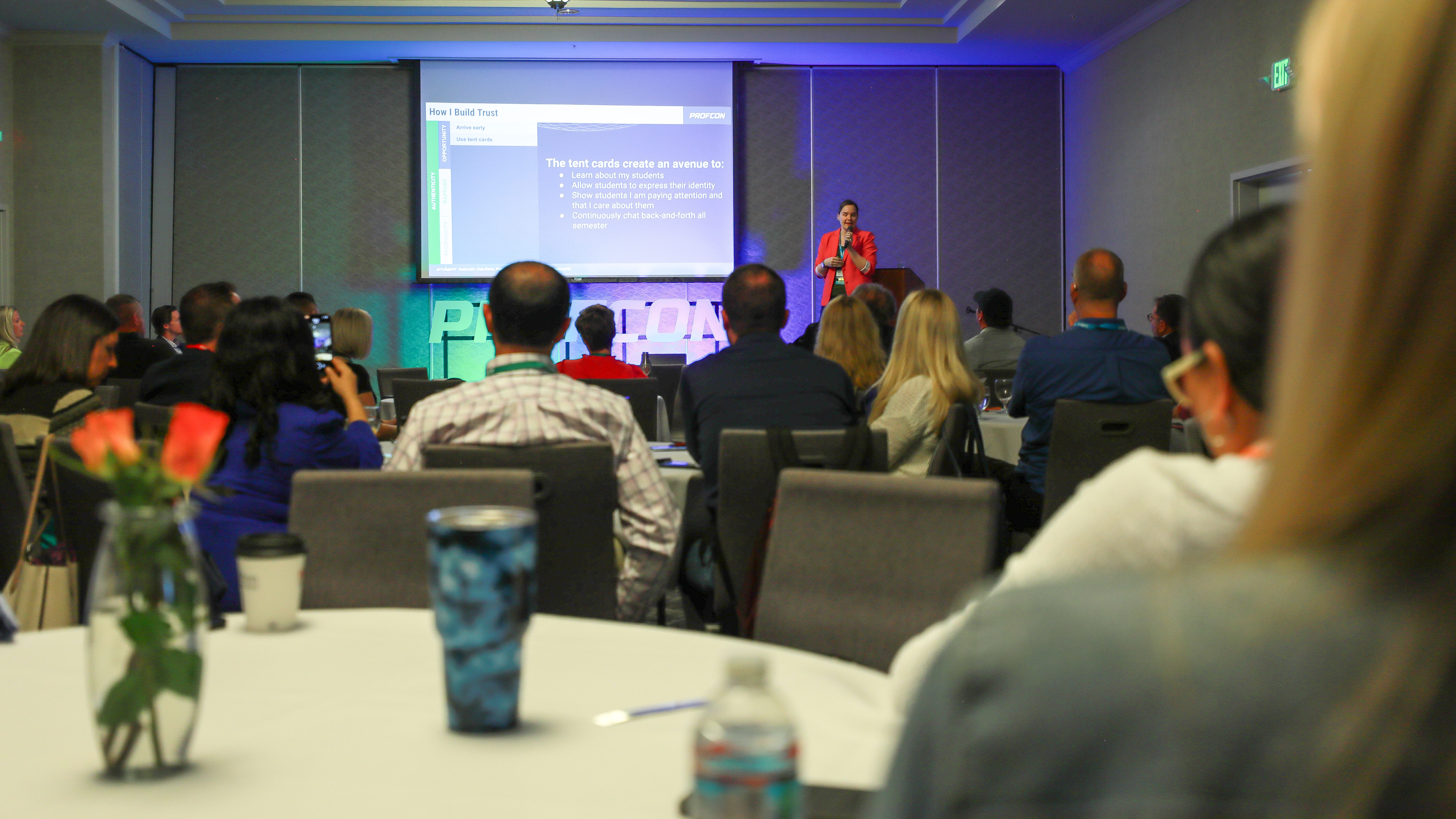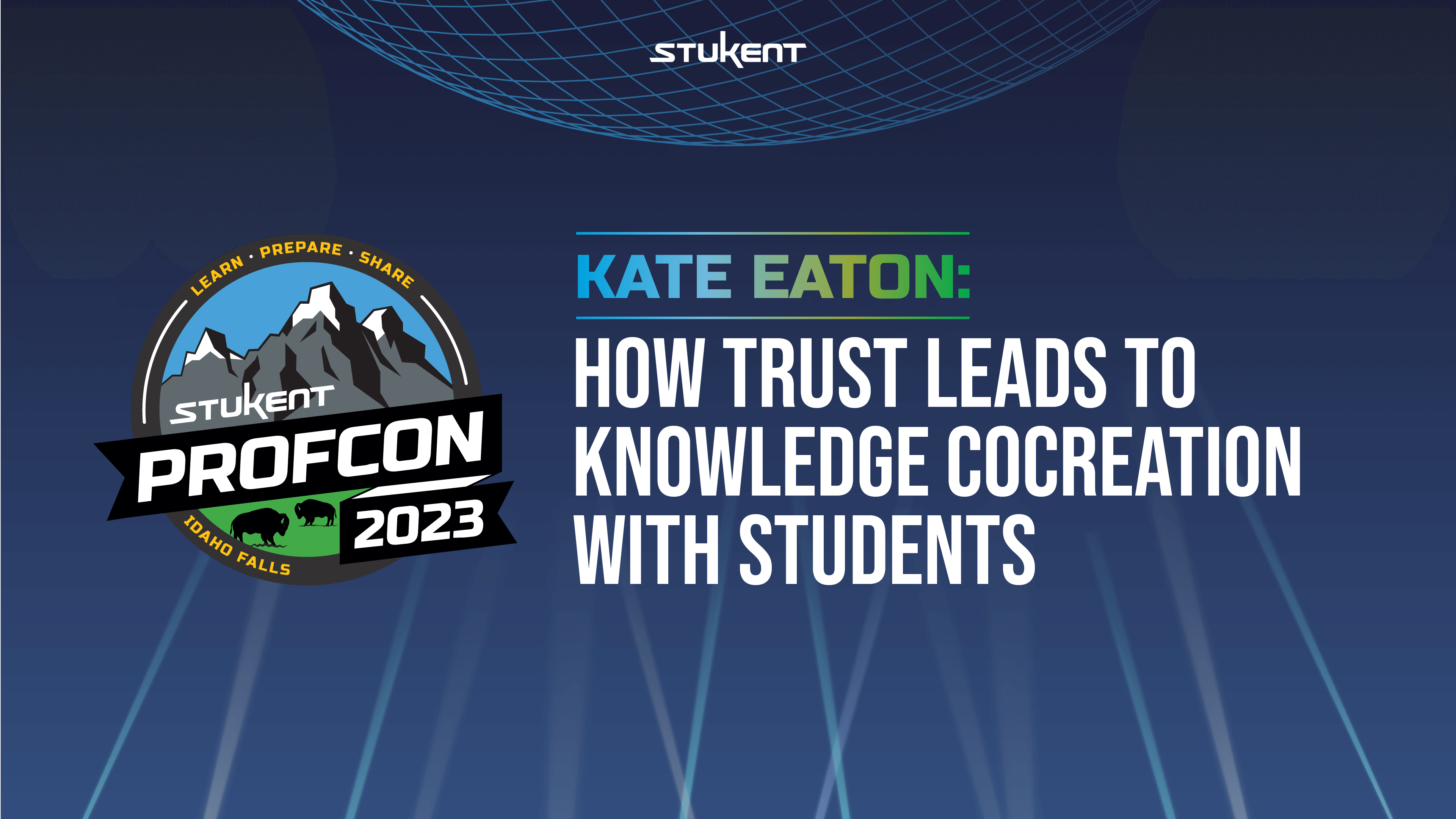Kate Eaton, an award-winning teacher and LEGO enthusiast, strives every school year to build trust and show care for her students. In her Stukent® Marketing ProfCon 2023 session, “Let’s Learn Together: Knowledge Cocreation in Higher Education,” Kate explains that the more she shares what she loves with students, the more they open up to her about what they love.
“My students know that I love LEGOs,” Kate says. “I talk about it on the first day, and they naturally start telling me about the things they love. It’s contagious, so feel free to share the things you’re excited about with your students.”

Kate is the assistant dean for MBA programs and a clinical associate professor of marketing at Arizona State University. As an innovator, Kate has developed several online classes and implemented flipped classrooms, experiential learning, new assessment techniques, and conceptual framework teaching strategies to maximize student learning.
If you missed Kate’s presentation, watch it on demand on the ProfCon 2023 Recap page. Or, read on for a recap of the frameworks and techniques Kate uses to cocreate with her students!
The Knowledge Cocreation Frameworks
Kate introduces three frameworks for online pedagogy: Facilitate Connections, Manage Performance, and Cultivate Mindset.
Facilitate Connections
In an online learning environment, it’s crucial to create connections between students and the instructor and among students themselves. Kate believes you can foster a collaborative learning environment where students feel engaged and supported by facilitating connections, such as discussion boards, team projects, and synchronous sessions.
Manage Performance
Once you connect with students, managing performance becomes essential. Kate suggests viewing students as partial employees. She explains three levers to encourage desired student behavior: role clarity, self-confidence, and motivation.
She explains that role clarity involves communicating expectations, behaviors, timing, and importance. Self-confidence plays a role in students’ belief in their ability to perform tasks, while motivation includes intrinsic and extrinsic rewards, such as grades.
However, Kate emphasizes fairness in allocation: “If students think that grades are a black box and are arbitrary, or if they feel like they’re being graded differently, then grades are going to stop being a motivating factor for our students,” she explains.
Cultivate Mindset
Cultivating a positive learning mindset is integral to students’ success and engagement. Kate recommends that students embrace a growth mindset, where they believe in their ability to learn and improve.
“How can we get them to take ownership of their experience?” Kate asks. “If they feel like education is something that’s happening to them, they aren’t going to lean in. They need to do something. They need to own it to get the most out of our classes.”
This mindset encourages students to take ownership of their learning, be resilient in the face of challenges, and actively engage with course content. Cultivating a mindset of learning and growth enhances student motivation and overall performance.
The Role of Trust in the Classroom
Kate reveals that trust is the secret sauce underlying the three frameworks and strategies.
“Innovation in the classroom is a risk,” Kate says. “It doesn’t always go well. […] I have innovated in the classroom and had some doozies in the past. So the trust that we build with our students doesn’t only benefit them — it also benefits us as we innovate and as we try to get better at our craft. We know that we’ll be giving each other some grace.”
Kate says that when she first started teaching, she wanted to distance herself from her students because she thought it would give her more credibility. This approach didn’t go well with her students, and she attributes that to her lack of authenticity. She believes that authenticity is crucial for building trust.
Kate shares how she builds trust in her classroom:
- Arriving early to class and engaging in small talk to establish rapport.
- Using name tent cards to learn and remember students’ names and preferences.
- Tracking moods on the tent cards where students can share comments.
- Providing in-class work days to collaborate and answer questions in class.

“What I’ve learned is that students are really aching for this,” Kate says. “They want this connection, and truly, this has become one of the best parts of my job. I love these stupid tent cards!”
Demonstrating Empathy and Vulnerability with Students
Kate emphasizes the importance of demonstrating empathy in your interactions with students. “If students don’t think you care, they aren’t going to open up to you,” Kate says. “You won’t have an opportunity to deepen your connection with them because they will be closed off.”
She encourages students to answer “How are you?” with a story to create opportunities for connection. It’s an opportunity for individuals to find things in common. Her students are encouraged to connect by coming early or staying after class.
“Rapport builds in the cracks,” Kate says. “It doesn’t build when you’re working on a task.”
Kate says being vulnerable is a way to humanize instructors and create a more empathetic classroom environment. She explains that she is enthusiastic in her classes, letting her “geek flag fly.” She tells her students what she loves (LEGO bricks), and her students feel welcome to share what they love.
“If you can recognize a love for something in someone else and build on that, you can translate that into an excitement and love for learning and marketing,” Kate says.
Kate then shares a story about vulnerability and humanizing oneself in the educational setting:
Kate also discusses the concept of reciprocity, emphasizing that educators should not expect anything from students that they are not willing to give to students. She exemplifies this concept by taking ownership of her role in the learning process and providing reasons for her actions. By controlling the narrative and giving students a sense of ownership over their stories, she establishes trust and opens avenues for meaningful conversations beyond academic concerns.
Kate encourages educators to plan for flexibility and empathy by being willing to say “yes” whenever possible. She sets deadlines on Fridays but refrains from grading until Mondays, allowing students to request extensions based on their circumstances.
Understanding and accommodating your students aligns with the real-world expectations of managers and promotes a supportive learning environment. By incorporating trust-building strategies and infusing passion and student interests into the curriculum, educators can cocreate a meaningful educational experience with their students.

Marketing ProfCon 2023 was a three-day academic conference held from June 14 – 16, 2023. Each year, ProfCon presents actionable tips and strategies for marketing educators to use in their classrooms. To watch sessions on demand, visit the Stukent Webinars Library.
Stukent is here to help educators help students help the world. To learn more about our first-in-the-world Simternships™ and courseware, or to get FREE instructor access to our products, visit our website.






